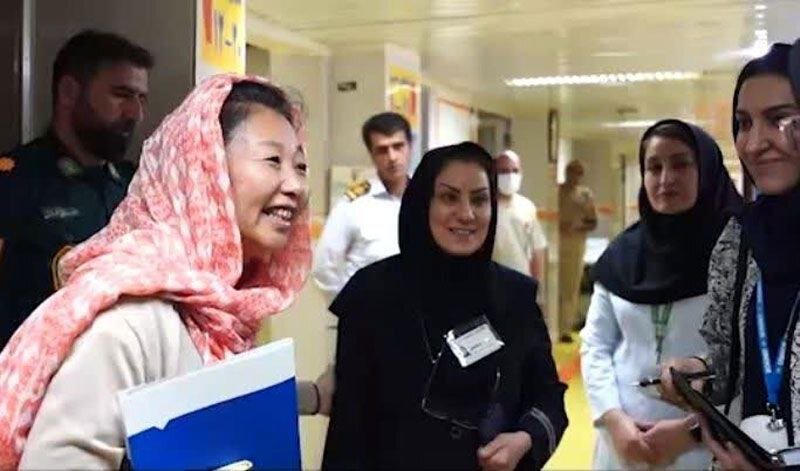Tehran – After a visit to Alzafra Hospital in Isfahan, Takashima Oshima, representative of Iran’s UN High Commissioner for Refugees (UNHCR), praised the health services provided to Afghan refugees.
During the visit to the hospital, officials were very impressed to speak to Afghan patients in person and hear about their experiences and treatment methods, the IRNA reported.
“There is no discrimination between patients in Iran and Afghanistan at this hospital, and we are also praised for the humanitarian, professional and equal treatment of medical staff,” she said.
Al-Zahra Hospital is one of the country’s leading medical centres and serves hundreds of patients per day, including Iranians and immigrants. However, economic pressures, sanctions and high costs of medical devices have made it difficult to continue service as before.
According to the head of the Al-Zahra hospital at Minoo Movahedi, who is the head of UNHCR, he was invited to Isfahan to take advantage of the opportunity to develop collaboration with the organisation to pay a portion of the costs, as well as the hospital’s capabilities, the type of services offered, and the treatment of refugees.
By writing a letter to the hospital, Yukimo has committed to supplying the medical equipment they need and covering some of the costs of handling refugees.
According to information available to UNHCR, Iran hosts around 773,000 refugees with Amayesh (761,000 Afghans) and Hoviat cards (12,000 Iraqis).
UNHCR estimates that around 3.8 million people in Iran (Islamic Republic) were forced to displace in 2024 in various documented states, making it the world’s largest refugee hosting country.
Looking forward to 2025, UNHCR Iran will focus on five strategic priorities that will maintain asylum spaces and enhance the protected environment. Increased support to strengthen and maintain comprehensive services such as health, education and social protection. Promote independence of forced evacuation people. Expanding opportunities for creative and innovative solutions through resettlement and complementary channels, including voluntary repatriation when the Afghan situation encourages repatriation. Reduces, prevents and protects statelessness through strengthening context-specific advocacy and partnerships.
mt/mg

